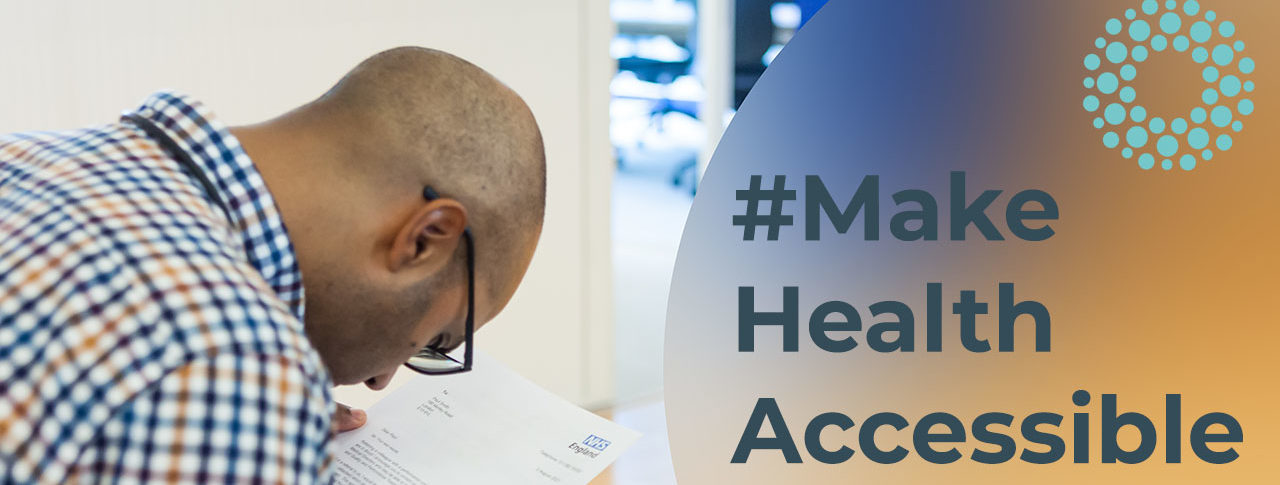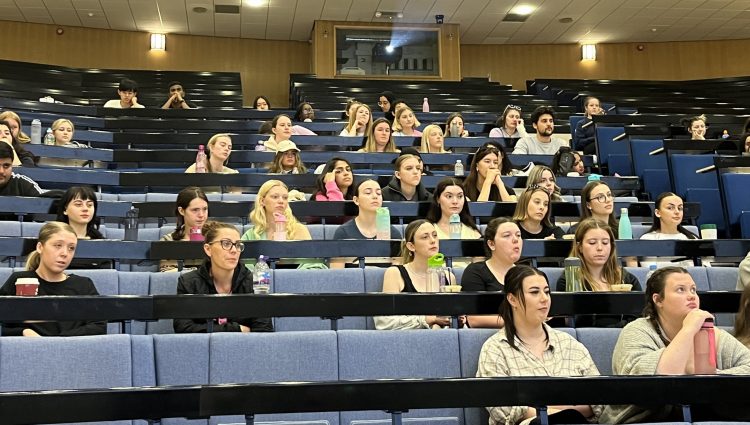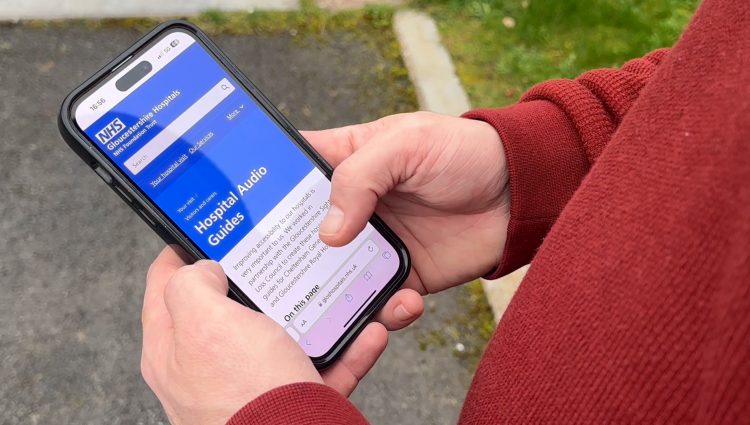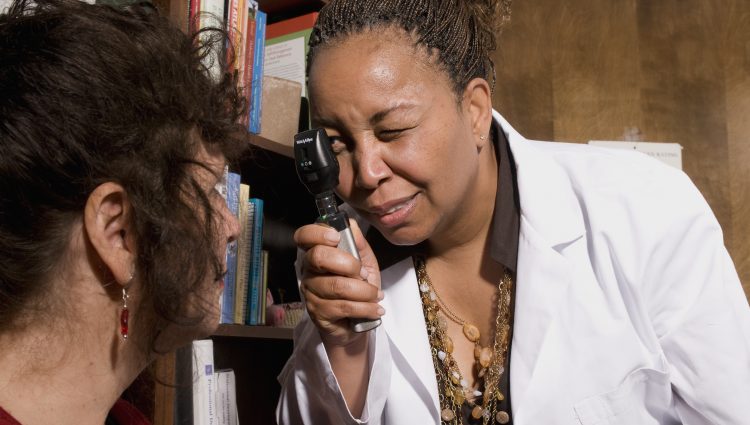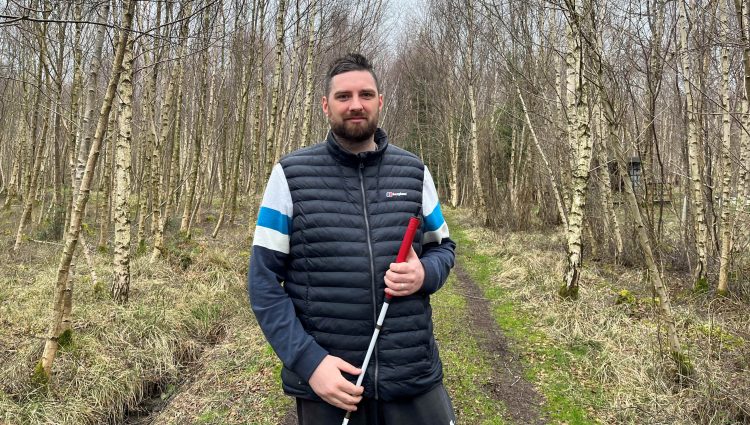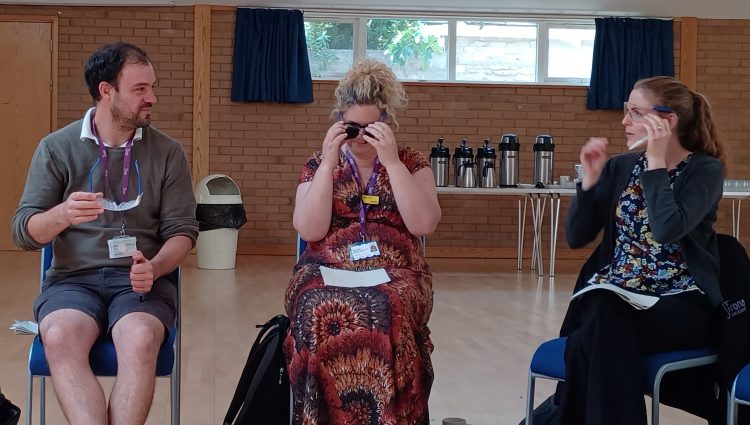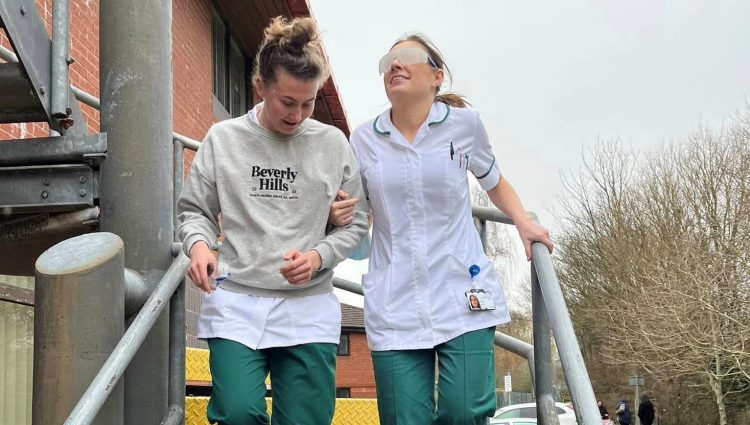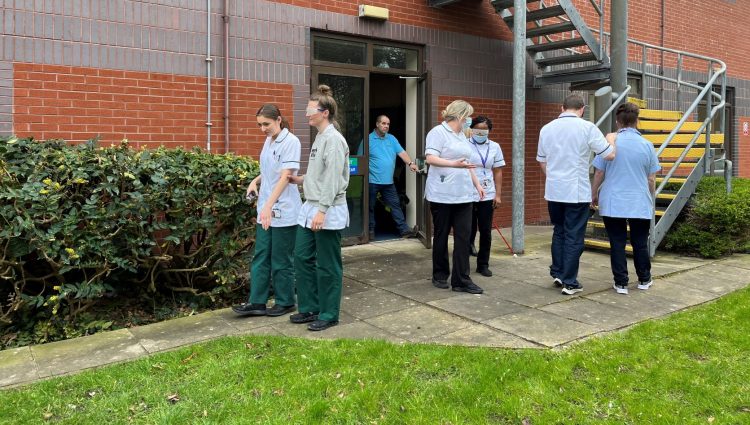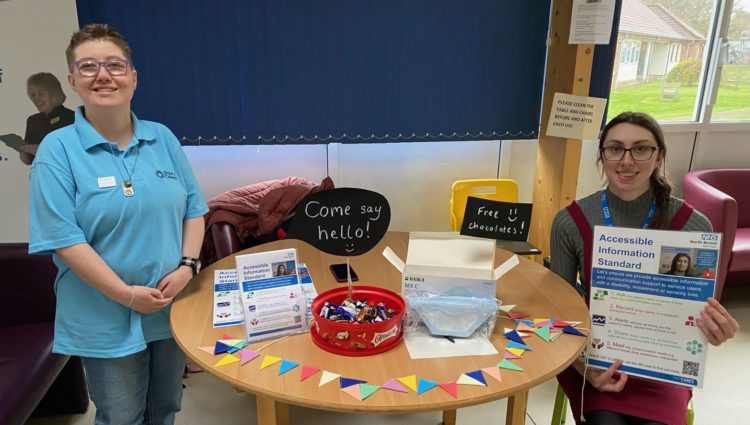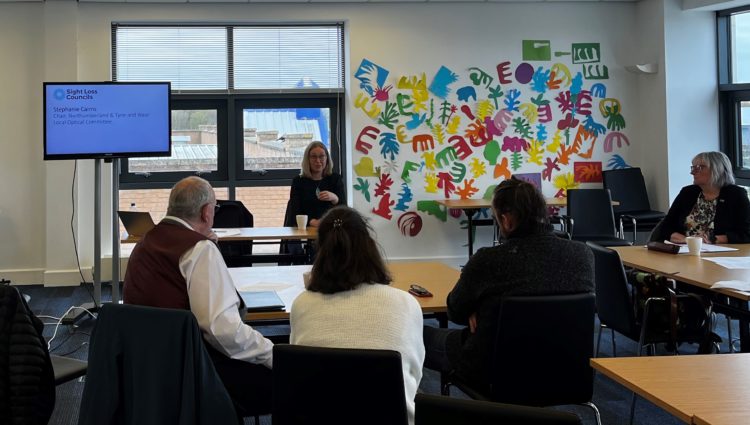#MakeHealthAccessible
In 2016, NHS England introduced the Accessible Information Standard (AIS) in England. It aims to ensure all health information is provided in the most accessible format for each patient (e.g. in braille, large print, audio, email). But implementation is, at best, mixed.
Most blind and partially sighted people still regularly fail to have their communication support needs met. Many NHS Trusts lack policies to ensure AIS compliance. And many NHS staff remain unaware of the AIS or its purpose. in 2022, the Government agreed to a review of the AIS, and this is expected to be published in 2023.
Accessible health information is vital for blind and partially sighted people. Without it, many risk missing appointments, not understanding their treatment or even taking the wrong medication.
‘Make AIS Work’ film launch
Sight Loss Councils work in their priority regions across England to support the embedding of the AIS standard to increase the accessibility of healthcare.
University Hospitals Bristol and Weston NHS Foundation Trust (UHBW) and Sight Loss Councils (SLC) have also launched two films with the goal of improving health information for blind and partially sighted people right across the country.
The health trust is on a journey to improve how the Accessible Information Standard is implemented and is working with the SLC to ensure the views of patients are central in this.
‘Make AIS work‘ shares the experiences and stories of people who are blind and partially sighted in getting health information in an accessible format. It highlights the growing work at UHBW in implementing AIS and provides practical examples other NHS Trusts and health organisations can make that will benefit patients.
Our second film – ‘A strategic perspective on the Accessible Information Standard’ features Professor Deirdre Fowler, Chief Nurse and Midwife at UHBW. She outlines why equality of access is so important to the trust and how the AIS is being implemented at the trust.
Watch the films
Download the transcript for Make AIS Work
Download the transcript for a Strategic perspective on the Accessible Information Standard
Sight Loss Councils are also calling on the managers of local NHS bodies, including hospitals and GP practices, to:
- Introduce clear local policies on AIS implementation and monitor the effectiveness and reach.
- Engage with blind and partially sighted people and others with accessible information needs to ensure that requirements are understood and met.
- Train all health staff in accessible information and communication as part of a wider programme of workplace equalities and disabled access education.
We also work with Thomas Pocklington Trust to lobby NHS England to support national implementation of this standard.
How you can help raise awareness
We’re keen to work with as many NHS trusts, doctors, nurses and staff as possible to increase awareness of the AIS and ensure blind and partially sighted people can access the healthcare they need.
Help us to raise awareness of this important issue. You can download the letter below and send it to anyone you know working in the NHS in any regional across England. As well as containing the links to our films, it underlines the huge importance of the AIS to the health of blind and partially sighted people.
Advice for health professionals on implementing the AIS
Thomas Pocklington Trust has also launched a Professionals Hub for guidance on how staff can implement the Accessible Information Standard within your organisation. This also provides guidance on how to best support blind and partially sighted patients.
Our research into the Accessible Information Standard
Following a Freedom of Information Act request to NHS bodies, plus in-depth research, we have found that:
- 90% of the blind and partially sighted people we spoke to were not regularly receiving medical information in their preferred format, with a third saying they never had.
- 75% said they cannot remember ever being asked by the NHS about preferred information formats, even though the AIS expressly states that this should happen.
- Only 45% of NHS bodies have policies in place for applying the AIS, with just 10% more currently in the process of introducing them.
- 51% of NHS bodies reported that they had never engaged people with disabilities as part of their AIS implementation.
- 70% of NHS bodies also said they had no means of recording numbers of accessible materials issued.
Our Accessible Information Standard Campaign
Our #MakeHealthAccessible campaign aims to celebrate the progress made in many areas while calling for increased compliance in others and, critically, to raise awareness of the standard among blind and partially sighted people themselves and their right to request and receive information in accessible formats.
“I advise my GP and hospitals of my need for accessible information on contact with them. There are times this request hasn’t been met. I missed an urgent scan once and on another occasion was chasing an appointment I was expecting only to be told I had missed it.” – Eamon from Greater Manchester SLC
Write to your GP
You can get involved in our campaign by signing our petition (above) and writing to your local GP surgery using our template letter for GP surgeries in the link below.
Simply, add your surgery’s address in the space at the top, insert your name at the bottom, and send by post or email.
Template letter for GP Surgeries
By taking this step, you will reinforce the purpose of the standard and remind surgeries of the five steps on the proper application of the AIS: namely, needs must be identified, recorded, flagged, shared and met. Your action will help prove the need for policies and training regarding accessible information, increase staff understanding of the issue, or provide a reminder that everything set out by the AIS constitutes reasonable adjustments.
“It’s incredibly frustrating that the Accessible Information standard is still not implemented appropriately across the country five years later. It makes a big difference to blind and partially sighted people to get the information in a format that they can read. Health information must be accessible. So, we are completely frustrated that the Accessible Information standard is not being implemented appropriately. We have tried, on many occasions, talking to York hospital about being able to meet their requirements under the law. And most of the time, we get the excuse that computer systems don’t talk to each other. But we’ve had five years to try and sort out computer systems not talking to each other. So, when is it ever going to happen?” – Diane Roworth from York SLC
Share your stories
We’d like to hear from your about your experiences with accessible healthcare information – whether good or bad. If you have a story to tell, contact us by emailing andrew.law@pocklington-trust.org.uk
It could be an information access request that was never met, but it might also be a positive experience, such as being offered an alternative format without asking. Please get in touch – we’re keen to know!
Whatever you tell us helps to turn up the volume!
“My GP practice is excellent as they use email and text. However, as for getting accessible Information from hospitals is concerned – it is impossible. Even though I have had consultants ask for letters to be sent to me in large print. NHS England blames the CCGs – who tell you to contact the Local PALs – who can’t be bothered to answer emails!” – Rosie from Essex SLC
Understand your rights
For further information on how to assert your rights to accessible information, follow the below link to download RNIB’s accessible health and care information guide.
What can I do to get accessible health and care information?

